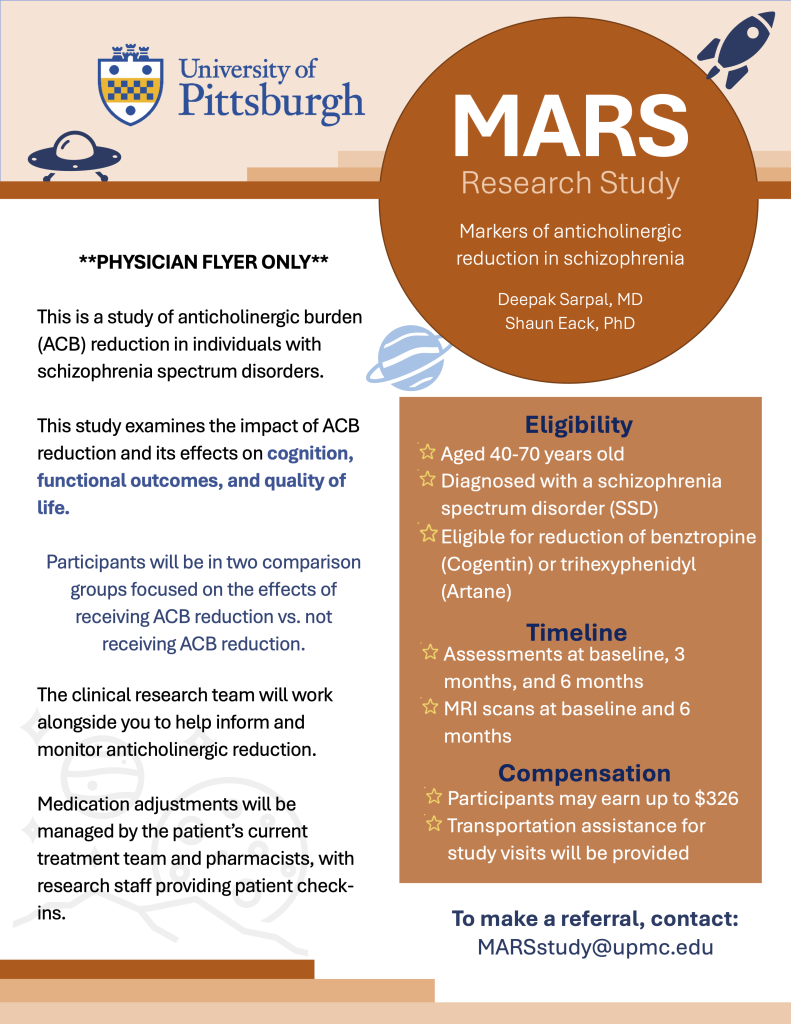Markers of Anticholinergic Reduction in Schizophrenia
This study is a prospective 6-month randomized-controlled study that examines neural, molecular, and functional impacts of anticholinergic burden (ACB) reduction via deprescription in mid- to late-life patients with schizophrenia spectrum disorders (SSD).
In the proposed study, we focus on iatrogenic anticholinergic burden (ACB) by drugs such as benztropine and trihexyphenidyl, which further impairs outcomes of chronic SSD. The use of these agents alongside antipsychotic drugs is pervasive, outweighing use for Parkinson’s disease by a factor of over 20, and more broadly, up to 63% of schizophrenia patients present with clinically significant ACB. In mid- to late-life patients, as many as 72% of schizophrenia patients have been reported to be receiving high ACB medicines. Our ongoing clinical effort to reduce the burden of unnecessary anticholinergic agents has resulted in better quality of life (QoL) and cognition for patients.
We believe this clinical scenario, illustrating a meaningful change in individuals with SSD, who are often assumed to have immutable presentations, offers an important opportunity for understanding circuits underlying global functioning and QoL.
To make a referral for the study or speak to a team member, please email:
MARSstudy@upmc.edu

